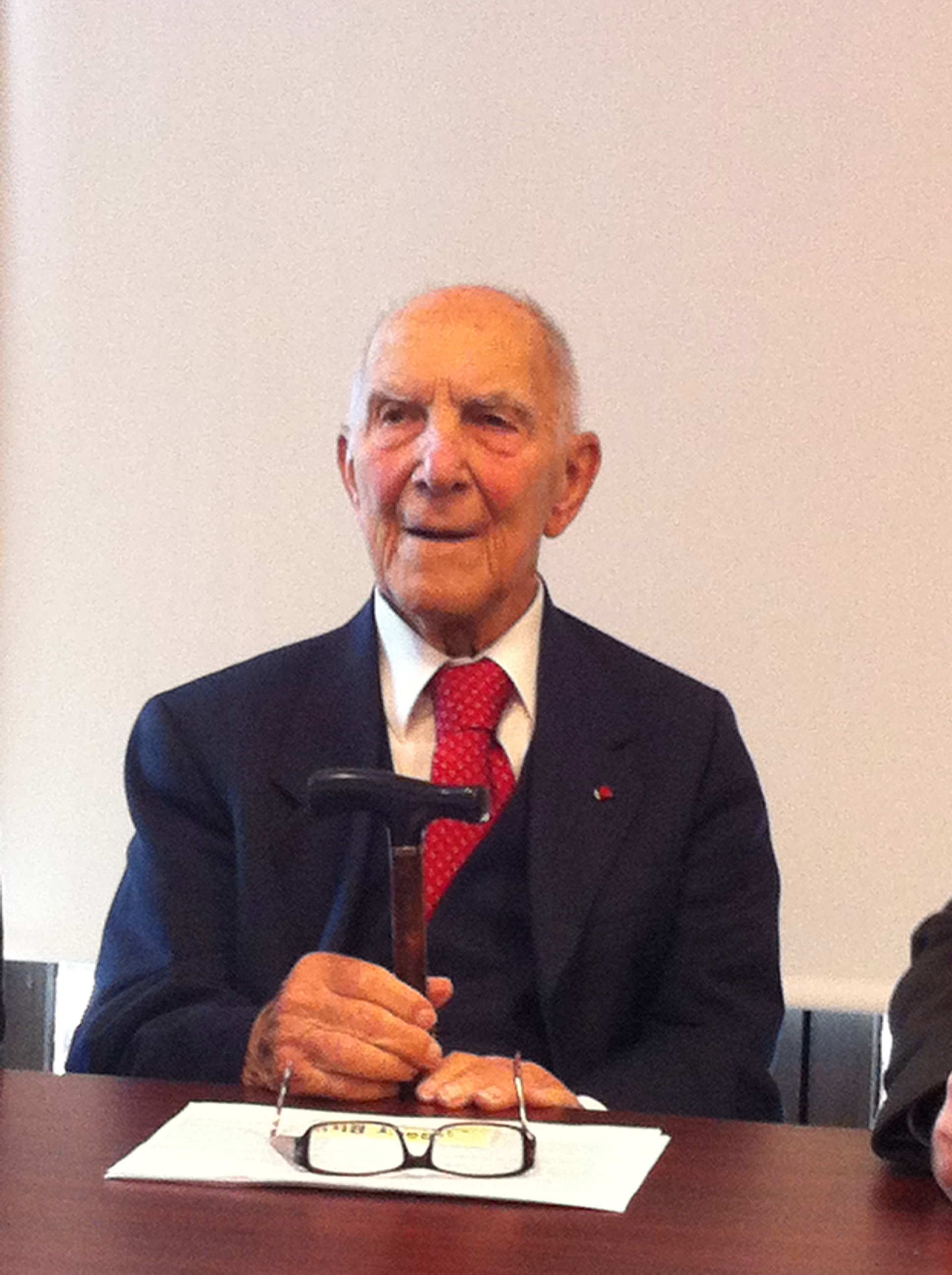
“Death is a great project, of all experiences it is perhaps the most interesting of all. We shall see what remains and what will be. Life has been beautiful, with awful moments and admirable ones. Death shall perhaps be even more beautiful, who knows!” ~ Stéphane Hessel
Stéphane Hessel (1917-2013) died in his sleep last week at the age of 95. He was a member of the French Resistance, a Buchenwald survivor, a co-author of the Universal Declaration of Human Rights, a diplomat, and the author of TIME FOR OUTRAGE (Indignez-Vous!), a pamphlet that sold over 4.5 million copies worldwide and was credited as the inspiration for the Ingidnados Movement, which was a precursor of Occupy. Hessel’s motto, “To resist is to create, and to create is to resist,” became a rallying cry for young people the world over.
It was in his capacity as a juror and the honorary president of the Russell Tribunal on Palestine that I met Stéphane Hessel in London in November 2010. The first time I saw him, I didn’t know anything about him beyond the brief biography in the program, but he spoke the most elegant French I had ever heard, and his charm, grace, and intelligence suffused the auditorium with warmth and humanity as he talked.
When I came back to New York, I sought out his books and learned more about his extraordinary life. His parents were the models for the characters in Truffaut’s film Jules et Jim. He was a hero of the French Resistance, and survived execution at Buchenwald only because a doctor in the camp switched his identity with that of another French prisoner who had died. Hessel entertained himself and others in the camp by reciting the hundreds of poems that he had memorized in French, German and English. (Hessel edited a collection of these poems entitled O ma mémoire: la poésie, ma nécessité that was published in 2006.) He spent a lifetime devoted to causes that embodied his respect for international law and the dignity of each individual. Towards the end of his life, his vocal support for Palestinian human rights resulted in some ugly attacks against his character, but he was not swayed.
I saw Hessel again when he was in New York in October 2012 for the New York session of the Russell Tribunal. He was as inspiring as ever, although a little more frail, having difficulty at times navigating the steps up to the dais where the jurors sat. I noticed as he spoke that most of the people in the room were completely smitten by him. It occurred to me that he had the charisma one expects in movie stars and politicians. What an amazing thing that he had devoted his magnetic personality not to accruing wealth or power, but to the great humanitarian causes of our age.
Nancy Kricorian
March 9, 2013